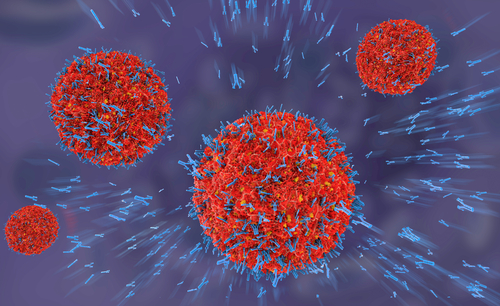The National Cancer Center (NCC) in Japan is advancing its research into novel immunotherapies for colorectal cancer by using the Hyperion Imaging System, a powerful tool that enables simultaneous visualization of dozens of markers in a sample of tissue.
The system, by Fluidigm, combines CyTOF technology with microscopic visualization of cells and tissues, a combination known as imaging mass cytometry.
CyTOF is Fluidigm’s branded product for mass cytometry — a method that allows the detection of a wide range of proteins in single cells by tagging with different metal probes and sensitive detection with minimal signal overlap, compared to more conventional, fluorescent dyes.
By combining this technology with microscopy imaging, the Hyperion Imaging System is a powerful tool that allows screening of multiple protein markers at a time, in a single scan.
This has the potential to inform researchers about multiple distinct features of tumors and their surroundings — the tumor microenvironment — to find new biomarkers or cell interactions that may help improve cancer detection or treatments.
“The Hyperion Imaging System provides a wealth of information from each tumor tissue sample by simultaneous analysis of up to 37 protein markers, providing a critical capability in our research into a potential therapy for colorectal cancer,” Hiroyoshi Nishikawa, MD, PhD, chief of the Division of Cancer Immunology at NCC and leader of the study, said in a press release.
“This technology is an extremely valuable tool in our translational research and drug discovery efforts,” he added.
Researchers have been using this system to learn more about how the tumor microenvironment works, including the several types of immune cells that play a part there.
Nishikawa and his collaborators will look specifically at the growth of regulatory T-cells (Tregs) — a type of immune cell often implicated in tumor resistance to immunotherapies — within tumor samples of colorectal cancers, the third most common cancer in men and the second most common in women.
Tregs are a specialized group of T-cells, that, as the name suggests, are key for regulating or suppressing other immune responses. Specifically, they protect us from immune responses against our own body tissues, a process referred to as maintenance of self-tolerance, and to avoid the damage of too much immune activity.
However, Tregs can promote the growth of tumors and suppress effective anti-tumor immunity, both from our natural immune activity or driven by anti-cancer immunotherapies.
“Various cancer immunotherapy approaches are often dampened by meddling Tregs, making them one of the major targets in the treatment of cancer,” Nishikawa wrote in a recent review article.
By using the Hyperion Imaging System, the team will explore in more depth the factors underlying the growth of Tregs at colorectal tumor sites with the ultimate goal of discovering new immunotherapy targets for this cancer.
“The National Cancer Center has chosen the Hyperion Imaging System to deeply interrogate tissue samples for critical immuno-oncology work, and we are truly excited that our technology is supporting research toward a potential future therapy for a disease as globally prevalent as colorectal cancer,” said Chris Linthwaite, Fluidigm president and CEO.


